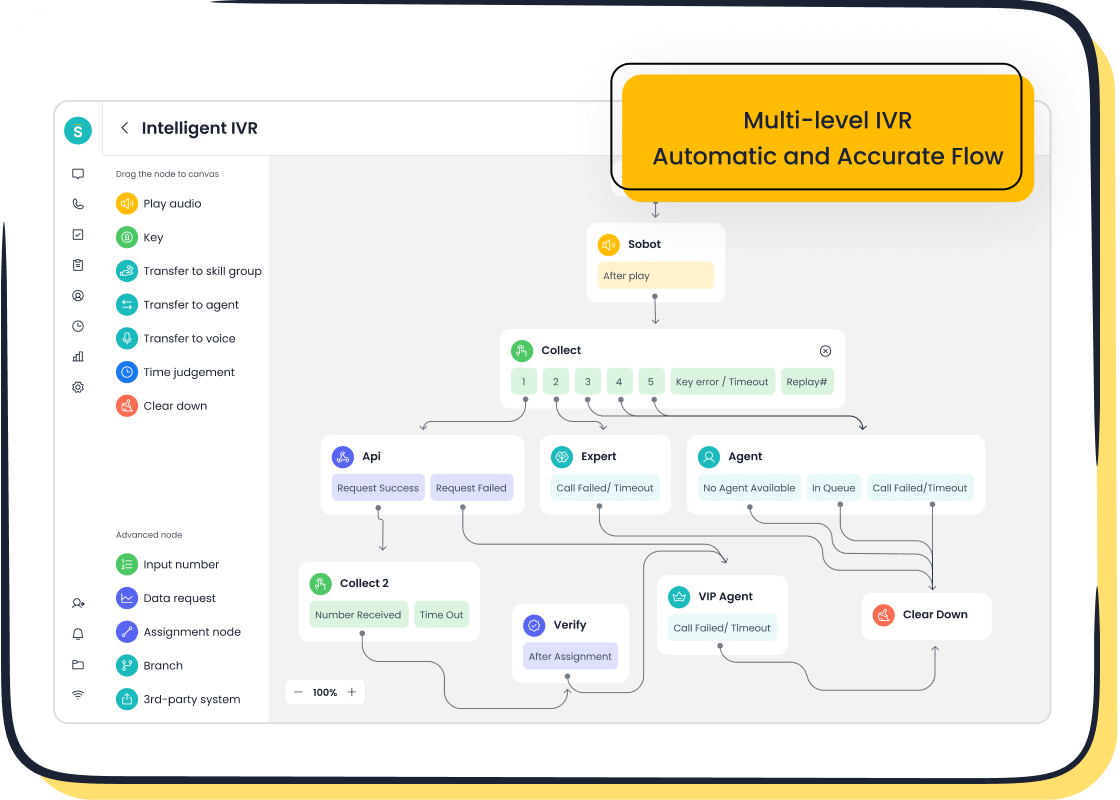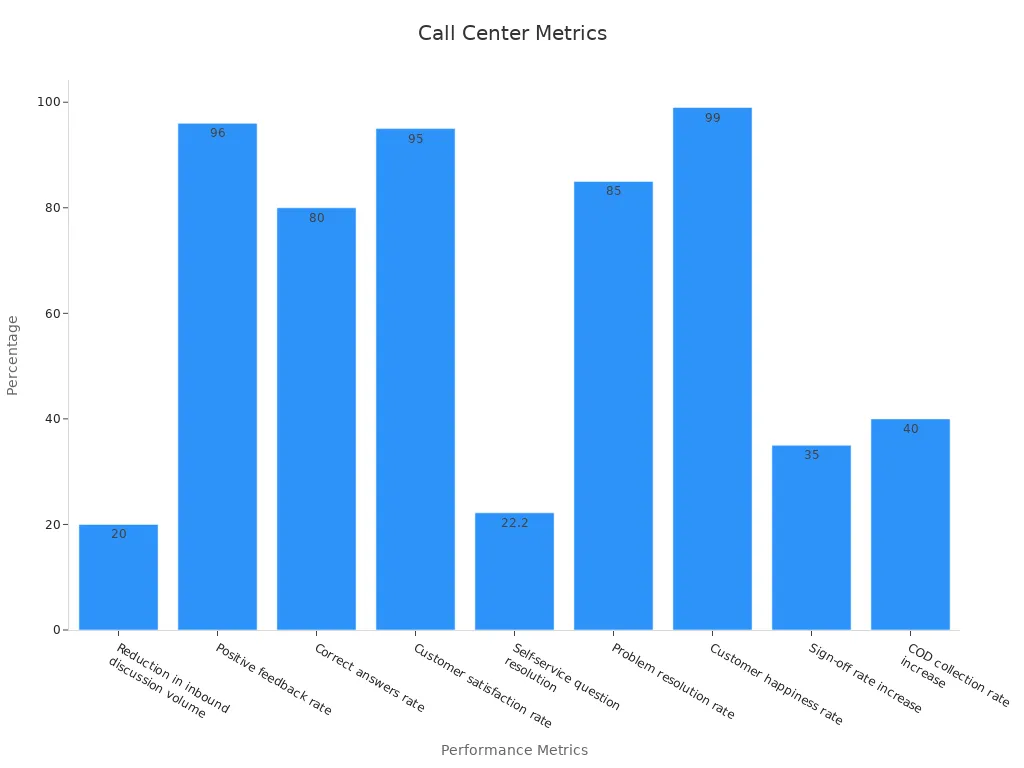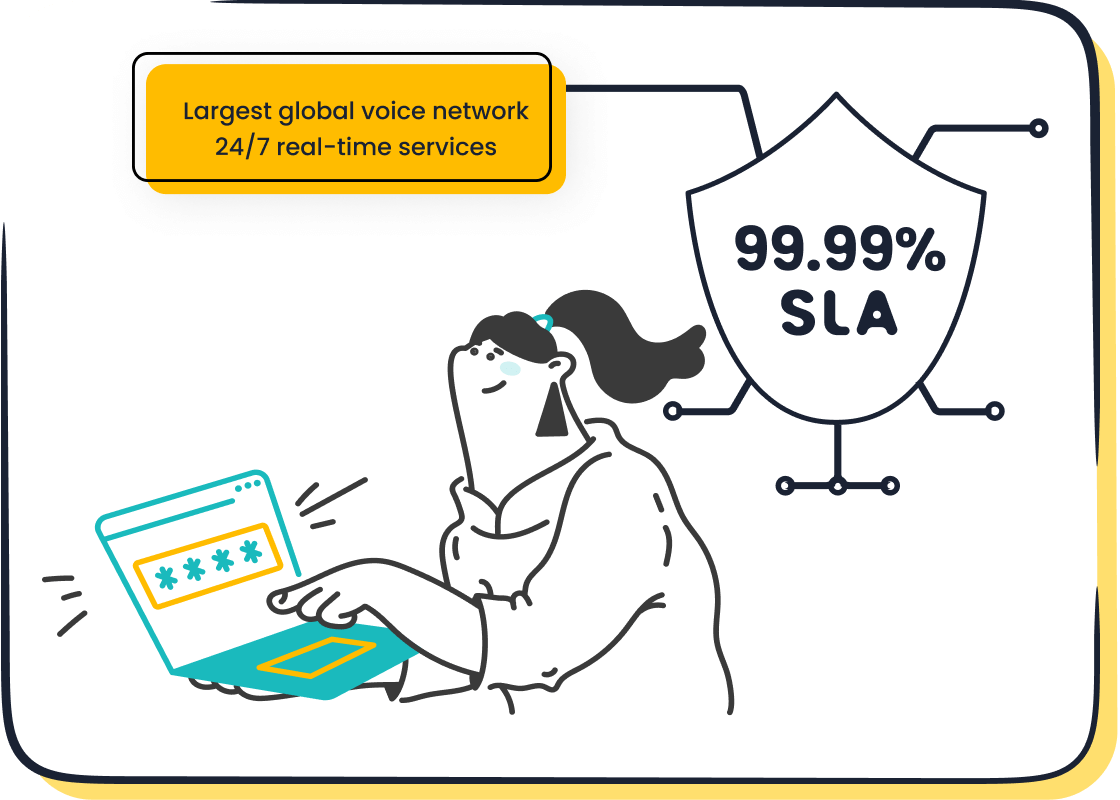Actionable Steps to Improve Your Customer Service Philosophy

Great customer service isn’t just a nice-to-have—it’s a game-changer for your business. Did you know 71% of people decide to buy based on the quality of customer support? A strong customer service philosophy can turn casual buyers into loyal advocates. Companies like Vodafone have proven this by boosting first-contact resolution rates by 30% through better training and issue tracking. When you focus on improving the customer experience, you’re not just solving problems—you’re building trust. Tools like Sobot’s advanced contact center solutions can help you refine your approach and deliver the best customer service philosophy in every interaction.
Understanding the Best Customer Service Philosophy
What Is a Customer Service Philosophy?
Your customer service philosophy is the foundation of how you approach serving your customers. It’s not just a set of rules—it’s a mindset that shapes every interaction. Think of it as your guiding principles for delivering exceptional customer service. This philosophy reflects your company’s values, your commitment to exceptional service, and your dedication to building lasting relationships with your customers.
For example, a customer-centric culture focuses on understanding and meeting customer needs at every touchpoint. It’s about creating a seamless customer experience that leaves people feeling valued and satisfied. Companies like Samsung have embraced this by using tools like Sobot’s omnichannel solutions to unify communication and provide personalized service. Their philosophy centers on being "Always Here for You," which has helped them achieve a 97% customer satisfaction rate.
When you define your customer service philosophy, you’re setting the tone for how your team interacts with customers. It’s the difference between a transactional approach and one that fosters genuine connections.
Why a Strong Philosophy Matters for Business Success
A strong customer service philosophy isn’t just good for your customers—it’s a game-changer for your business. Why? Because happy customers stick around, and loyal customers drive growth. Studies show that improving customer retention by just 5% can boost profits by up to 75%. That’s the power of a well-defined philosophy.
Take a look at the data:
| Metric | Impact on Business Performance |
|---|---|
| Customer Retention | Improving retention by 5% can increase profits by 75% |
| Customer Lifetime Value (CLTV) | Essential for demonstrating ROI on customer service investments |
| Net Promoter Score (NPS) | Indicates customer satisfaction and loyalty, impacting growth |
When your team operates with clear guiding principles, they’re better equipped to deliver consistent, high-quality service. This consistency builds trust and strengthens relationships with your customers. It also boosts employee morale. When employees understand the "why" behind their actions, they feel more engaged and motivated.
Samsung’s collaboration with Sobot is a great example. By integrating Sobot’s all-in-one contact center solution, Samsung streamlined its operations and empowered its agents to focus on meaningful interactions. The result? A 30% increase in agent efficiency and a philosophy that truly puts the customer first.
Common Standards for Crafting the Best Customer Service Philosophy
Creating the best customer service philosophy starts with a few key standards. These principles ensure your philosophy is both actionable and effective:
- Feedback Integration: Use surveys and social media monitoring to understand what your customers need. Listening to their voices helps you refine your approach.
- Regular Assessments: Evaluate your service quality through customer feedback and key performance indicators (KPIs). This keeps your philosophy aligned with customer expectations.

- Training and Tools: Equip your team with the knowledge and resources they need to succeed. For instance, Sobot’s Voice/Call Center provides intelligent IVR and AI-powered voicebots to enhance customer interactions.
Here’s what research tells us:
| Key Findings | Implications |
|---|---|
| Customer-centric strategies contribute to innovativeness and business growth among exporters. | Establishes the importance of customer orientation in enhancing business performance. |
| Sales employees’ service attitude positively affects customer performance. | Indicates that employee attitudes are crucial for customer satisfaction. |
By focusing on these standards, you can create a philosophy that not only improves customer satisfaction but also drives business success. Remember, your philosophy isn’t static—it should evolve as your customers’ needs change. Tools like Sobot’s omnichannel solutions make it easier to adapt and maintain a customer-centric culture.
Aligning Your Customer Service Philosophy with Customer Needs

Identifying Customer Pain Points Through Feedback
Understanding your customers starts with listening to them. Feedback is the bridge between what your customers experience and what they truly need. Whether it’s through surveys, social media comments, or direct conversations, gathering feedback helps you uncover pain points that might otherwise go unnoticed. For example, metrics like Net Promoter Score (NPS), Customer Satisfaction Score (CSAT), and Customer Effort Score (CES) provide valuable insights into loyalty, satisfaction, and ease of service.
Here’s a quick breakdown of these metrics:
| Metric | Description |
|---|---|
| Net Promoter Score (NPS) | Measures customer loyalty and satisfaction. |
| Customer Satisfaction Score (CSAT) | Assesses overall satisfaction with a specific interaction. |
| Customer Effort Score (CES) | Evaluates the ease of completing a task or resolving an issue. |
Quantitative data like this helps you track trends and identify patterns. But don’t stop there—pair it with qualitative insights from open-ended feedback to get the full picture. This dual approach ensures you’re not just solving problems but also building trust with your customers.
Tailoring Your Philosophy to Meet Diverse Customer Expectations
No two customers are the same, so your philosophy should reflect that diversity. Empathy plays a key role here. By understanding the unique challenges your customers face, you can adapt your approach to meet their expectations. For instance, some customers value speed, while others prioritize personalized attention.
Regularly analyzing feedback allows you to adjust your philosophy to stay relevant. According to research, organizations that continuously evaluate their service strategies maintain a competitive edge and improve customer experiences. Here’s why:
| Evidence Description | Key Insight |
|---|---|
| Regularly gathering and analyzing feedback helps identify areas for improvement. | This indicates how well the service philosophy is implemented daily. |
| Continuous feedback enables organizations to adjust their service strategies. | It allows for responsiveness to customer needs and expectations. |
| Ongoing evaluation of service philosophy is crucial for meeting evolving customer needs. | Organizations that adapt maintain a competitive edge and improve customer experiences. |
By tailoring your philosophy, you’re not just meeting expectations—you’re exceeding them. This creates a great customer experience that fosters loyalty and trust.

Leveraging Sobot’s Voice/Call Center for Enhanced Customer Insights
Sobot’s Voice/Call Center is a game-changer when it comes to understanding customer needs. With features like intelligent IVR, AI-powered voicebots, and real-time call tracking, it provides a treasure trove of insights. These tools help you identify recurring issues, track customer sentiment, and even predict future needs.
Take a look at the performance metrics that validate its effectiveness:

For example, Sobot’s platform has achieved a 95% customer satisfaction rate and an 85% problem resolution rate. These numbers highlight how the right tools can transform your customer service approach. By leveraging Sobot’s solutions, you’re not just improving operations—you’re building trust and delivering a customer experience that stands out.
Defining Vision, Values, and Voice for Your Philosophy
Establishing Core Values That Reflect Your Brand Identity
Your core values are the heart of your customer service philosophy. They define who you are as a brand and guide how you interact with customers. When your values align with your brand identity, they create a consistent and authentic approach to service. For example, Zappos emphasizes "Deliver WOW Through Service," which inspires their team to go above and beyond for customers. This commitment to exceptional service fosters loyalty and creates memorable experiences.
Take a look at how other companies use their values to shape their strategies:
| Company | Vision/Core Values |
|---|---|
| Unilever | Vision: 'To make sustainable living commonplace.' Core Values: Sustainability, Healthier planet and society. |
| Netflix | Core Values: Encourage decision-making, share information openly, communicate candidly, avoid rules. |
| Zappos | Core Values: Deliver WOW Through Service, embrace change, create fun, build open relationships. |
| Georgia’s Own Credit Union | Core Values: Accuracy, Professionalism, Accountability, Teamwork, Communication. |
By defining your values, you’re not just setting expectations for your team—you’re showing your customers what you stand for. This transparency builds trust and strengthens your relationships.
Crafting a Vision Statement to Inspire Your Team
A compelling vision statement motivates your team and gives them a clear sense of purpose. It’s not just about where you are today—it’s about where you’re headed. Studies show that a well-communicated vision can improve team performance and creativity. In fact, vision integration among employees accounts for nearly 40% of the variance in creative performance. This highlights how a strong vision can drive innovation and continuous improvement.
For example, Sobot’s vision, "to be a leading provider of intelligent and omnichannel contact center solutions globally," inspires its team to innovate and stay customer-focused. When your team understands the "why" behind their work, they’re more engaged and committed to delivering exceptional service.
Communicating Your Philosophy Across All Channels
Your customer service philosophy should be consistent across every channel. Whether it’s through email, social media, or phone calls, your customers should feel the same level of care and commitment. This is where tools like Sobot’s omnichannel solutions shine. By unifying communication channels, you can ensure your team delivers a seamless experience every time.
Transparency and empathy are key here. Open communication about your values and philosophy helps customers feel connected to your brand. Regularly sharing updates, success stories, and even challenges shows your commitment to continuous improvement. When customers see your dedication, they’re more likely to trust and support your brand.
Implementing Your Customer Service Philosophy in Daily Operations
Training Teams to Embody Your Philosophy
Your team is the face of your customer service philosophy. To ensure they embody it, you need to invest in training that equips them with the right skills and mindset. Start by assessing their current knowledge through surveys or feedback sessions. This helps you identify gaps and tailor training programs to address specific needs.
Interactive elements like role-playing, videos, and games can make training more engaging. For example, a customer service training manual that outlines your philosophy, standards, and procedures can serve as a valuable reference. Focus on essential skills like active listening, empathy, and adaptability. These skills not only improve customer satisfaction but also strengthen relationships with your customers.
Here’s a quick checklist for effective training outcomes:
- Teach active listening to understand customer needs.
- Encourage positivity and empathy to build trust.
- Develop conflict resolution skills to turn negative interactions into positive experiences.
- Promote patience and tact for handling sensitive situations.
- Foster adaptability to maintain service standards in unpredictable environments.
When your team feels empowered and confident, they’re better equipped to deliver exceptional customer service. This leads to higher satisfaction rates and stronger customer relationships.
Integrating Philosophy into Customer Support Processes
Your customer service philosophy should be woven into every aspect of your support processes. Start by aligning your workflows with your philosophy’s core values. For example, if your philosophy emphasizes a customer-first strategy, prioritize resolving issues quickly and efficiently. Metrics like First Contact Resolution and Average Ticket Resolution Time can help you measure success.
Here’s a table of key performance indicators (KPIs) to track integration:
| KPI | Description |
|---|---|
| Average Ticket Resolution Time | Measures the average duration to resolve a customer support ticket. |
| Net Promoter Score | Assesses customer satisfaction and loyalty based on their likelihood to recommend the service. |
| First Response Time | Indicates the average time taken for the initial response to a support ticket. |
| Cost Per Resolution | Calculates the average cost incurred to resolve a customer issue. |
| Customer Retention Rate | Measures the rate at which customers continue to engage with the business over time. |
| First Contact Resolution | Percentage of inquiries resolved in a single interaction. |
| Customer Effort Score | Evaluates the effort customers expend to interact with the business. |
Integrating your philosophy also means empowering your team to make decisions that prioritize customer satisfaction. For instance, Sobot’s omnichannel solutions unify communication channels, enabling agents to access customer data seamlessly. This reduces repetitive questioning and enhances the customer experience. By embedding your philosophy into daily operations, you create a consistent and proactive support system that builds trust and loyalty.

Using Sobot’s Voice/Call Center for Seamless Implementation
Sobot’s Voice/Call Center is a powerful tool for implementing your customer service philosophy. Its intelligent IVR system allows you to customize greetings and route calls efficiently, ensuring customers feel valued from the moment they connect. Features like AI-powered voicebots and real-time call tracking provide actionable insights into customer needs and sentiment.
For example, the platform’s ability to track and analyze call data helps you identify recurring issues and improve processes. With a 99.99% system uptime and global number availability, Sobot ensures reliable communication across time zones. This stability supports your team in delivering exceptional customer service consistently.
Here’s how Sobot’s Voice/Call Center aligns with your philosophy:
- Customer-Focused Culture: The unified workspace empowers agents to prioritize customer needs.
- Employee Empowerment: Intelligent tools like AI voicebots free up agents to focus on complex issues.
- Continuous Improvement: Real-time analytics provide insights for refining your strategy.
By leveraging Sobot’s solutions, you can seamlessly integrate your philosophy into daily operations, enhancing both customer satisfaction and operational efficiency.
Learning from Successful Customer Service Philosophies

Case Study: Samsung’s Collaboration with Sobot

Samsung’s journey with Sobot is a shining example of how a well-executed customer service philosophy can transform operations. Faced with the challenge of managing countless inquiries across multiple channels, Samsung turned to Sobot’s all-in-one contact center solution. This partnership unified their communication systems, streamlined workflows, and empowered agents with real-time customer data.
The results were remarkable. Samsung achieved a 30% boost in agent efficiency and a 97% customer satisfaction rate. By integrating tools like AI-powered voicebots and omnichannel solutions, they reduced repetitive tasks and focused on delivering personalized experiences. Their philosophy, "Always Here for You," came to life through these innovations, proving that the right tools can elevate your customer service philosophy from a concept to a competitive advantage.
Key Takeaways from Top Brands’ Philosophies
Top brands have mastered the art of aligning their customer service philosophies with their values. Here’s what you can learn from them:
| Brand | Key Takeaways |
|---|---|
| Ritz | Empower through autonomy; Commit to continuous excellence. |
| Trader Joe's | Simplify the customer journey; Empower customer service teams to foster a sense of connection. |
| Slack | Own critical systems for optimization; Offer immediate value to drive engagement. |
These companies show that a strong philosophy isn’t just about solving problems—it’s about creating memorable experiences. For instance, Ritz empowers employees to make decisions on the spot, ensuring customers feel valued. Trader Joe’s focuses on simplifying interactions, making every visit enjoyable. You can apply these lessons by empowering your team and streamlining your processes.
Adapting Lessons to Your Business Context
Adapting these insights to your business starts with understanding your unique challenges. Did you know bad customer service costs businesses $338 billion annually? That’s a staggering figure, but it highlights the importance of getting it right.
Start by identifying gaps in your current approach. Are your customers frustrated by long wait times? Tools like Sobot’s Voice/Call Center can help. Its intelligent IVR and real-time analytics allow you to address issues faster and more effectively.
Next, focus on empowering your team. Give them the autonomy to make decisions that align with your philosophy. Whether it’s resolving issues on the first call or offering personalized solutions, small changes can make a big difference.
Finally, keep evolving. Customer needs change, and your philosophy should too. Regularly review feedback and refine your approach to stay ahead. By learning from top brands and leveraging tools like Sobot’s solutions, you can create a customer experience that stands out.
A well-defined customer service philosophy is the backbone of exceptional customer experiences. It builds trust, fosters loyalty, and drives business growth. To refine yours, focus on gathering feedback, training your team, and integrating tools like Sobot’s Voice/Call Center. Metrics such as Customer Satisfaction Score and First Contact Resolution Time can help you measure success. By aligning your philosophy with customer needs and leveraging innovative solutions, you’ll create a seamless experience that sets your brand apart. Remember, great service isn’t just a goal—it’s a journey.
FAQ
What is a customer service philosophy, and why does it matter?
Your customer service philosophy is your guiding principle for serving customers. It shapes how your team interacts with them. A strong philosophy builds trust, improves satisfaction, and drives loyalty. For example, Samsung’s philosophy, supported by Sobot’s solutions, helped them achieve a 97% satisfaction rate.
How can I align my customer service philosophy with customer needs?
Start by gathering feedback through surveys or tools like Sobot’s Voice/Call Center. Use metrics like NPS and CSAT to identify pain points. Tailor your approach to meet diverse expectations, whether customers value speed, personalization, or empathy.
How does Sobot’s Voice/Call Center improve customer service?
Sobot’s Voice/Call Center offers intelligent IVR, AI-powered voicebots, and real-time analytics. These features help you resolve issues faster, track customer sentiment, and deliver personalized experiences. With a 99.99% uptime, it ensures reliable communication across all time zones.
What are some key metrics to measure customer service success?
Track metrics like First Contact Resolution, Customer Satisfaction Score (CSAT), and Net Promoter Score (NPS). These indicators show how well your team meets customer needs. Sobot’s solutions provide real-time data to help you monitor and improve these metrics.
How can I train my team to embody our customer service philosophy?
Focus on skills like active listening, empathy, and adaptability. Use tools like role-playing and interactive training sessions. Sobot’s unified workspace simplifies workflows, allowing your team to focus on meaningful interactions that reflect your philosophy.
See Also
Essential Principles for Effective Call Center Quality Management
Ten Strategies to Enhance Live Chat Customer Experience
Top Strategies for Effective Call Center Quality Assurance
